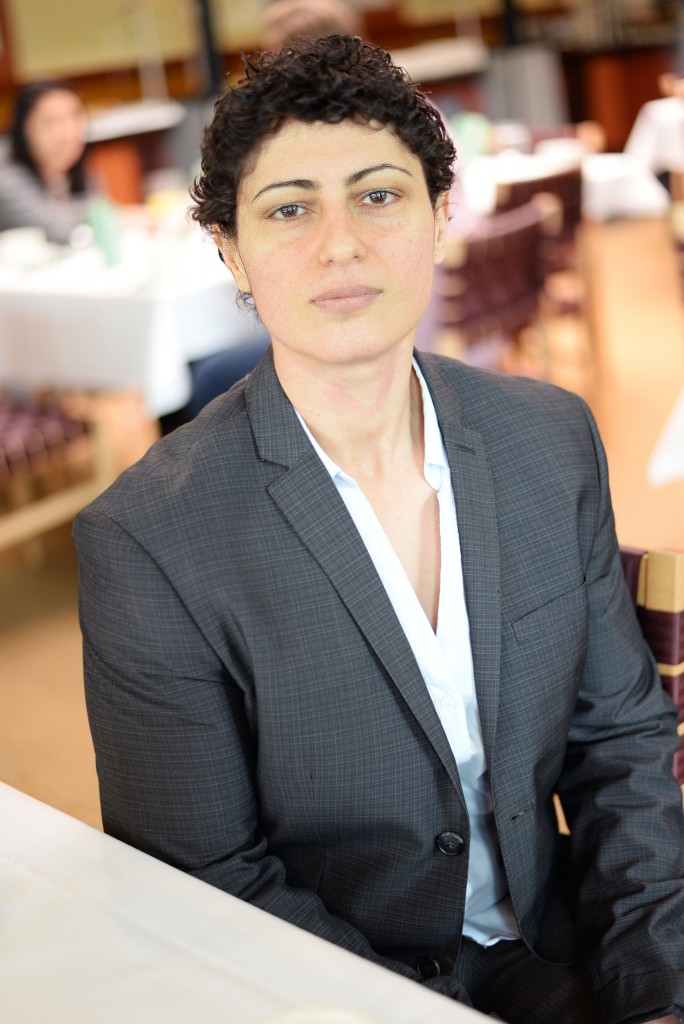
Pipe Dream: Tell us a little bit about yourself.
Samar Habib: I am a scholar of gender and sexuality in the Arab world, particularly in relation to women, that’s my area of expertise.
PD: How have you explored your interests with your career?
SH: I started out doing a Ph.D., and essentially what I’m talking about today is exactly that journey. My interest was in how far back same-sex desire went among women in the Arab world, what forms did it take, what were the cultural understandings of it and what remaining evidence of it is there. That’s exactly what I set out to do, and it was a very ambitious project. I was doing research from the ninth and tenth century, and that’s where the journey started. I was really shocked and pleasantly surprised by the things that I found. I also researched contemporary popular cultures in the Middle East, looking at Egyptian cinema and contemporary Arabic fiction in conjunction with theories of gender and sexuality that came out of the Western academy.
PD: What got you into this topic?
SH: Why not? LGBT studies began to emerge out of feminism and feminist studies, so women in the olden days — the 1970s, in universities — began to cultivate a culture of studying women. Specifically, it used to be called women’s studies, to advance the causes of feminism. And out of that emerged scholarly interest in different, “other” minorities, other oppressed groups. And the more ‘P.C.’ Gender Studies came out of that, and then queer theory came out, and further contrasts in defining the self emerged as a result. The queer argument being, of course, is that identifying as a woman itself can be servile to patriarchy. So why would I not be interested? I belong in a long thread of a long line of people who have been thinking about sex in an intellectual kind of way. And what it does to us in a power structure, socially.
PD: What are some of the conclusions that you’ve come to?
SH: The most important thing that I’d like to address is that the understanding of Islam in Western public discourse is a caricature. It can’t capture the depth and breadth and vibrant mosaic of everything that falls under this rubric we call Islam. So for me, it’s something that I approach with an enormous amount of respect and fascination and interest. You can’t really enter into an intelligent public debate with the way that the media has come to portray Islam and Muslims at the moment. You really have to be careful who you’re talking to.
PD: What do you want to change about that discourse?
SH: My ambitions are very minimal. What I would like to offer is an alternative, far more expansive, evidence-based perspective on the Islamic world, on Muslim cultures and geographies and histories, and to really demonstrate that there are so many different ways of looking at Islam and what it has contributed to the world, intellectually and historically and in terms of civilizational continuity.
PD: Speaking at a university and in front of college students, what do you hope to accomplish?
SH: I love universities, I love intellectual pursuits — this is my most natural habitat, to stand in front of an audience of people who are thinking and people who are interested in thinking. What I hope to accomplish is to disseminate this knowledge that I have, to interest people in the search for truth for themselves. The thing that I loved about being a university student was that I was taught to think critically and was equipped with the skills and the knowledge to formulate my own questions and to pursue finding answers for them. I mean, that’s the essence of research. And ultimately, if I were to inspire anyone to do anything, it’s to not take anyone’s knowledge as one’s own without searching for that knowledge yourself.
My work is about discovering new knowledge, and preserving it for perpetuity. I like to create knowledge, and I like to create a historical account of what has happened and what has existed. And if that contributes to empowerment, perfect. I would imagine it would. That’s my hope. But my intention is to always be a scholar of truth first. Politics is not something that is of tremendous importance to me, because it can get in the way of truth. My loyalty is to truth first.


